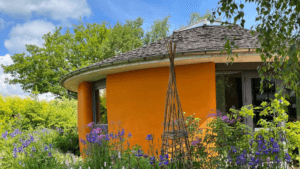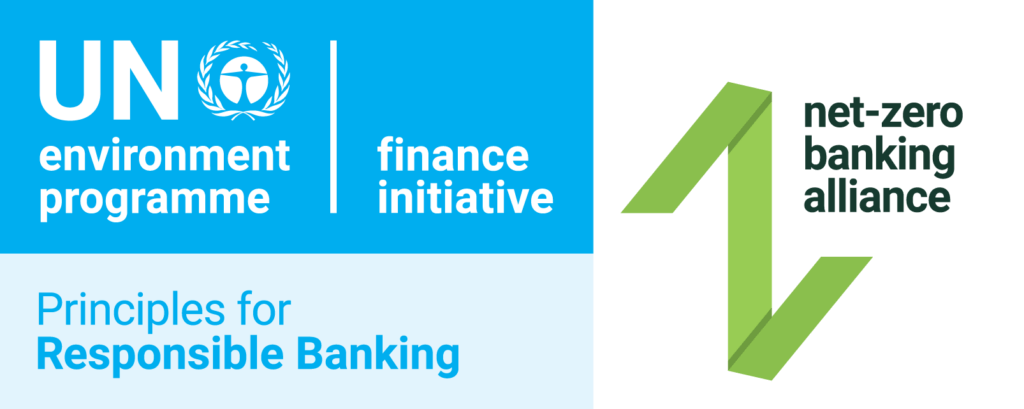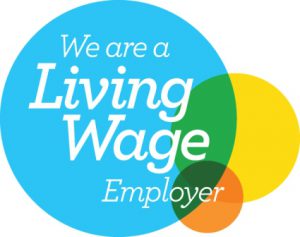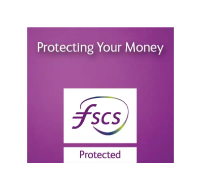Our Environmental Impact
We want to have the most positive environmental impact we can through our business. We do this best through our lending - we support and promote building practices that respect the environment and help sustainable, low impact communities to thrive.
Discover Customer Projects. Read our Net Zero Transition Plan.
We’ve always worked to reduce the direct environmental impact of the way we operate. Every year, we measure and publish our greenhouse gas emissions and review our environmental policy. We’re regularly audited on how we manage our environmental impact by Investors in the Environment. At our head office, we aim to minimise our energy consumption, water usage and the waste we generate in our day-to-day running. We also champion sustainability in our day-to-day work.
In 2024, we updated our net zero targets. We raised the ambition in areas we have full control over, made the targets more specific, and clearly stated the starting year we are comparing to – 2019 – across all our targets. When we first set our targets, this was the most recent year that lending and construction happened as normal, before the disruption caused by the Covid-19 pandemic in 2020 and 2021.
Our offices
In 2024, the solar panels on our roofs generated 20% of our electricity. We buy the rest through a 100% renewable electricity tariff with Ecotricity, who’ve supplied us since 2001. We’ve reduced gas use from our boiler by almost 60% since 2019, and we've started the process of moving to a zero-carbon heating system by the end of 2025.

Our eco-build head office, completed in 2004, was designed to have an airtight structure, high levels of insulation and low energy requirements. Windows are double glazed and filled with argon to keep the heat inside in winter, and reflective film prevents overheating in summer. The office is currently heated by a heat exchanger and the original high efficiency condensing boiler. Wherever possible, materials used in the building are from renewable sources, recycled or low toxicity. A rainwater harvesting system supplies water to our toilets, our green roof and permaculture gardens, which provide habitats for wildlife.
We encourage colleagues and visitors to choose more active, healthy and environmentally friendly ways to travel, including avoiding unnecessary trips. We’ve successfully cut emissions from business travel by 52% since 2019, and our colleagues enjoy access to electric vehicle charging on site.
Our permaculture gardens
The gardens around our offices are designed to be edible and productive whilst being low-maintenance, wildlife-friendly and attractive. They include a woodland habitat and wildflower meadow, as well as ‘superfood’ fruits, nuts, herbs and mushrooms. Raised beds provide space for our colleagues to grow their own vegetables. Part of the gardens are also open for the local community to enjoy.
Read our original landscaping designs report
Our greenhouse gas emissions
Ecology’s updated net zero targets:
- We will achieve zero greenhouse gas emissions from the electricity and heating of our head office by the end of 2025.
- We will halve emissions from our suppliers and colleagues against a 2019 baseline by 2030.
- We will achieve net zero greenhouse gas emissions in our lending by 2050 or sooner (by physical intensity in kgCO2e/m2 against a 2019 baseline), with an interim target to halve emissions by 2030.
We’ve reported the emissions from our business operations since 2012, calculated by Small World Consulting, a team based at Lancaster University and led by footprinting expert Mike Berners-Lee.
Emissions from our business operations, commuting and supply chains in 2024 were 570.57 tonnes CO2e, which is a 17% increase on our emissions in 2023 (486.76 tCO2e). Whilst we’ve significantly reduced our gas use (-59%) and business travel (-52%), our exceptional investment in our technology infrastructure and growing colleague numbers mean that emissions from suppliers and colleagues' commuting and homeworking have increased. These are areas we can’t solve alone – we need our suppliers to have their own reduction targets in place, and local and national infrastructure that supports low-carbon travel and heating. In 2024, we changed the way we calculate emissions from suppliers, so that we can identify the most important suppliers to engage with. We have a hybrid working policy and report homeworking as well as commuting emissions. We're always exploring ways we can support our colleagues to reduce their emissions while travelling to and from work and at home.
We’ve been committed to taking responsibility for our impact since we began in 1981. For as long as we’re unable to eradicate our dependence on fossil fuel use, especially from our suppliers, commuting and business travel, we purchase verified emissions reduction credits equivalent to our remaining footprint each year. These are carefully selected to align with our mission from credible and transparent schemes. We also support accredited tree-planting schemes through our partner Forest Carbon, creating future carbon absorption capacity.
Read our Net Zero Transition Plan
Fair Tax
In 2016 Ecology was the first building society in the UK to be awarded the Fair Tax Mark, the world’s first independent accreditation scheme to address the issue of responsible tax. The scheme demonstrates our genuine commitment to be open and transparent about the Society’s tax affairs and pay the right amount of corporate tax at the right time and in the right place.
Fair Pay
Ecology has a long-standing commitment to fair pay:
- Ecology became an accredited Living Wage Employer in 2015, demonstrating our continued commitment to fair pay for our colleagues. The real Living Wage is independently calculated so that employees are paid at a level that reflects the cost of living. All contractors working on our premises are also paid at least the Living Wage.
- All employees (including Executive Directors) are paid fairly for their expertise, overall contribution and the general marketplace. Ecology's policy is that no basic salary will ever be more than eight times that of the lowest full grade salary we pay.




